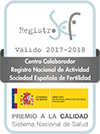
The Embryo Transfer is the last step in the IVF process. The success of an Assisted Reproduction procedure may depend on the embryos and their ability to implant in the uterus. Then, the patient will have to wait for about two weeks to know if a pregnancy has occurred. Patients have a lot of questions and thoughts during the dreaded Two-Week Wait (2WW): Should I be on complete bed rest? Is there anything I can do to increase my chances on getting pregnant? Do I have to keep taking my medication? Is it safe to have sexual intercourse?
What To Do After Embryo Transfer
Although Fertility Specialists generally recommend some safety precautions after an embryo transfer, they also stress that patients can carry a normal life, not to obsess over whether or not you are pregnant. Use this time to try to take it easy and relax, plan activities you enjoy, both before and after the 2WW, and spend time with family and friends.
- Bed rest after Embryo Transfer: Bed rest is advised while at the clinic (no more than 20-30 minutes) after the embryo transfer is performed. Once you leave the clinic, you may resume your routine activities, avoiding strenuous activities but you can return to your normal routine.
- Avoid strenuous physical activity: You can go for a walk, drive, go to work (if your work does not involve heavy lifting or vigorous exercise) and you can explore relaxation techniques such as yoga and Tai Chi.
- Sexual Intercourse: It is recommended to avoid sexual intercourse until you get your pregnancy test result. Most women experienced enlarged ovaries as a result of ovarian stimulation and penetration and orgasms can cause uterine contractions.
- Medication after transfer: When the patient is discharged home, the doctor will provide instructions concerning the type and dosage of the medication to be used until the pregnancy test result. If you feel some discomfort after the procedure (low abdominal pain or headache) you can take paracetamol for pain relief.
- It is important to avoid baths (tub baths, swimming pool, beach) to avoid potential infections.
- Drink plenty of fluids: In order to maintain adequate hydration and to help regulate cell hydration, which is essential for proper cell functioning (including the endometrial cells themselves).
And, above all, stay calm. Read this post for further tips on how to deal with the Two Week Wait, two weeks that carry a variety of feelings like uncertainty. Following these recommendations and introducing some changes in your daily routine, as explained above, can be tremendously helpful. Having a relaxed attitude towards the pregnancy test and sharing your experience with others will help you get through this period.







